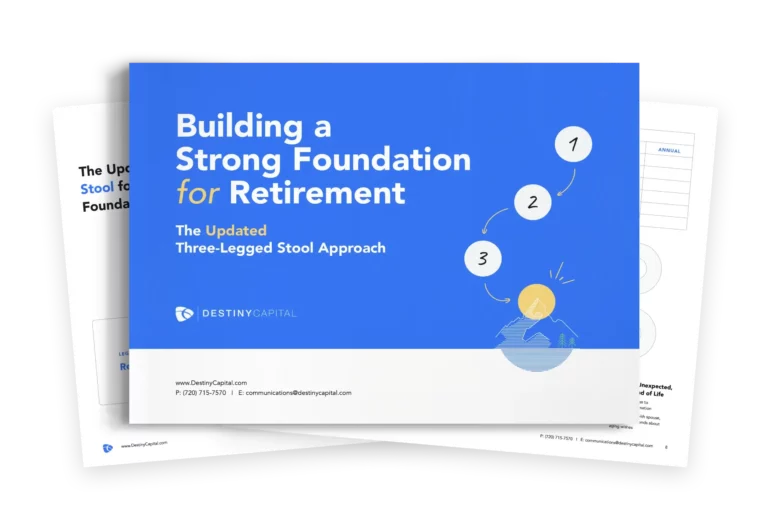
Empowering Women’s Retirement: 7 Reasons Women Need to Plan Differently
March is Women’s History Month, a time to celebrate the achievements and contributions of women throughout history. While we commemorate the strides women have made in various aspects of life, it’s also crucial to address the unique challenges they face, particularly in financial planning, especially when it comes to retirement. In this blog post, we’ll explore seven reasons why women need to plan differently for retirement and provide actionable insights to help women secure their financial future.
- Longer Life Expectancy: Women typically live longer than men, which means they need to plan for a longer retirement period. According to the World Health Organization, the global average life expectancy for women is around 73 years, compared to 68 years for men. With longer life expectancy comes the need for more savings to cover living expenses, healthcare costs, and other essential needs during retirement.
- Wage Gap and Income Disparities: Despite progress in narrowing the gender pay gap, women still earn less than men on average. According to data from the U.S. Bureau of Labor Statistics, women earn about 82 cents for every dollar earned by men. This wage gap can significantly impact women’s ability to save for retirement and accumulate wealth over time. As a result, women may need to save a higher percentage of their income and take additional steps to bridge the gap in retirement savings.
- Career Interruptions: Women are more likely than men to take career breaks or reduce their working hours to care for children, elderly parents, or family members. These career interruptions can lead to lower earnings, reduced retirement savings contributions, and gaps in Social Security benefits accrual. Planning for these interruptions and taking proactive steps to mitigate their impact on retirement savings is essential for women’s long-term financial security.
- Part-Time Work and Gig Economy: Many women work part-time or in the gig economy, which often lacks access to employer-sponsored retirement plans such as 401(k)s or pensions. Without access to these retirement benefits, women may need to rely more heavily on individual retirement accounts (IRAs), health savings accounts (HSAs), or other alternative savings vehicles to build their retirement nest egg. Additionally, women in the gig economy should prioritize establishing emergency funds and disability insurance to protect their financial well-being.
- Caregiving Responsibilities: Women are disproportionately responsible for caregiving duties, including childcare and eldercare. Balancing caregiving responsibilities with career advancement opportunities can be challenging and may result in reduced earnings and retirement savings. Women who anticipate assuming caregiving responsibilities should incorporate these factors into their retirement planning and explore options such as long-term care insurance to manage potential costs associated with caregiving.
- Longer Retirement Periods as Single or Divorced: Women are more likely than men to be single or divorced in retirement due to factors such as longer life expectancy and higher rates of widowhood. As a result, they may need to manage their finances independently and plan for retirement with a single income. Building a robust retirement portfolio, maximizing Social Security benefits, and considering longevity risk management can help single or divorced women secure their financial future in retirement.
- Healthcare Costs and Long-Term Care: Women tend to have higher healthcare expenses in retirement, partly due to their longer life expectancy and increased likelihood of needing long-term care services. Planning for healthcare costs, including Medicare premiums, supplemental insurance, and potential long-term care expenses, is essential for women’s retirement planning. Investing in health savings accounts (HSAs) and exploring long-term care risk management options can provide additional financial protection against rising healthcare costs.
In conclusion, as we celebrate Women’s History Month, it’s crucial to recognize the unique challenges women face in retirement planning and take proactive steps to address them. By acknowledging factors such as longer life expectancy, wage disparities, career interruptions, caregiving responsibilities, and healthcare costs, women can develop tailored retirement strategies to secure their financial future. Through education, empowerment, and informed decision-making, women can take control of their retirement planning journey and achieve financial independence and security in retirement.
Important note and disclosure: This article is for informational purposes only and should not be relied upon as a basis for your investment, business, or personal financial decisions. We recommend consulting with your wealth advisor, CPA/tax advisor and/or attorney, as applicable to your situation, prior to implementing any new tax, legal, or investment strategy. Advisory services provided by Destiny Capital Corporation, a Registered Investment Adviser.




